~ 13 ~
“LANZAR A LAS PROFUNDIDADES” ~
“Con tu palabra echaré las redes”.
Preparo mi corazón para orar
Al comenzar, me tomo un momento para percibir la Presencia del Señor ante mí,mirándome con amor, deseando hablarle a mi corazón.
En oración, leo Lucas 5, 1-11
Después de leer en oración, pido una gracia que deseo en este momento de oración.
Usando mi razonamiento:
- Piense en lo que está sucediendo en la escena; ¿Cuáles son las palabras de acción?
- ¿Quiénes son las personas en la escena? Cuál es el lugar ¿Qué cosas se describen?
- ¿Qué palabras me llaman la atención? ¿Qué significa esto para mí?
Usando mi imaginación:
- Me imagino en la escena, ¿soy un observador o participante? ¿A quién me siento atraído?
- Usando todos mis sentidos, ¿qué veo? ¿Qué escucho? ¿Qué siento, huelo o pruebo?
Reflexiono sobre lo que Dios le dice a mi corazón:
- Mientras reflexiono, utilizo mis sentidos espirituales para reconocer lo que está ocurriendo en mi corazón: mis pensamientos, sentimientos y deseos. (Reconocer significa ver, notar, darse cuenta, nombrar).
Es importante hacer esto, ya que mis pensamientos, sentimientos y deseos dan forma a mis acciones. - Busco la verdad que el Señor me está comunicando. Le pido a Jesús que me dé su mente y sus pensamientos para ver con los ojos de su corazón lo que hoy quiere revelarme. ¿Cómo me está llamando Jesús a aplicar esta verdad a mi vida?
Reflexión Guiada
Citado de “Una Introducción Ignaciana a la Oración”,
por el padre Timothy M Gallagher, O.M.V1
Estoy ahí, en la orilla del lago, por la mañana. Veo a Jesús de pie junto al agua, las multitudes, las barcas preparadas en la orilla. Las multitudes lo presionan para escuchar su enseñanza. Me mezclo con ellos, escucho como Jesús enseña …
“Jesús, subiendo a una de las barcas, que era de Simón, le pidió que se apartara un poco de la orilla”. Me acerco … y ahora estoy presente en la barca mientras Jesús y Pedro
hablan …
Estoy con Pedro, tal vez me siento movido a tomar el lugar de Pedro … y escucho al Señor decirme, como a Pedro: “Rema mar adentro”. ¡Marcha a lo profundo! No continúes simplemente como lo has hecho hasta ahora, sino que ve a lo profundo de tu vida espiritual diaria, viviendo tu llamado …
Esta primera petición no fue difícil: “le pidió que se apartara un poco de la orilla”. La segunda es más demandante: “Remar mar adentro…” Le pido al Señor que me muestre dónde me está llamando para salir de nuevo… para profundizar en mi vocación…
Pedro expresa mi propia sensación de impotencia: “¡Hemos trabajado la noche entera y no hemos sacado nada!” Meses, incluso años de trabajo y las mismas dificultades
continúan …
Pero ahora, llega el momento de la gracia, el momento de la fe, el momento de confiar con valentía en la palabra del Señor: “pero si tú lo dices, echaré las redes”. Le pido al Señor que me dé nueva fortaleza, una nueva confianza en su palabra … para que pueda dar ese nuevo paso…
Veo la fecundidad asombrosa de este simple acto de confianza en la palabra del Señor, en la invitación del Señor a “remar” a “mar adentro”: El trabajo inútil se transforma en una abundancia desbordante … las redes se llenan hasta romperse, las barcas a su máxima capacidad …
Mi vida también puede cambiar …
Pedro, sintiendo la cercanía de Dios en Jesús, siente también su propio pecado: “Aléjate de mí …” No puedo estar tan cerca de lo Divino …
La respuesta de Jesús es inmediata: “No temas”. No tengas miedo … lo escucho decir estas palabras, una y otra vez, a mi corazón, a
mi miedo …
Y le da a Pedro, me da a mí, una participación en su propia misión de salvación: “De ahora en adelante serás pescador de hombres”.
Dejan todo y lo siguen …
Te pido esta gracia en este tiempo de oración:
Conversa con Dios2
Reconocer:
- ¿Cuáles son los pensamientos que surgen en mi corazón? Yo creo …
- ¿Cuáles son los sentimientos que surgen en mi corazón? Yo siento …
- ¿Cuáles son los deseos que surgen en mi corazón? Yo deseo …
Relacionar:
Honestamente relaciono esto con Dios; le hablo a Él de esto, confiando en que está presente y escuchándome a mí, su amado hijo.
Recibir:
- Escucho lo que el Señor quiere decirle a mi corazón, sabiendo que Su amor es gratuito e incondicional. Recibo su amor y consuelo. Confío en que Él anhela consolarme, animarme, fortalecerme, curarme, perdonarme…
- Le permito a Él que me guíe; quizás volviendo a la escritura …
Responder en oración:
- Concluyo mi tiempo de oración hablando con Jesús, con Dios Padre y / o el Espíritu Santo como le hablaría a un amigo. También puedo invocar la intercesión de María y los santos. (San Ignacio llama a esto un coloquio).
Alábalo – doy gloria a Dios por quien es; por ser todo bueno y amoroso; por ser mi Señor y salvador…
Agradécele – por nuestro tiempo juntos; por su palabra para mí; por los regalos que me ha dado hoy …
Pídele … por ayuda, gracia, fuerza, sabiduría, fe más profunda…
- En base a lo que Dios está diciendo a mi corazón, me propongo actuar de la siguiente manera concreta para amar a Dios y amar al prójimo (que podría ser algo pequeño). Hoy voy a …
Descansen en el Señor:
“Quédense quietos y sepan que yo soy Dios”
Psalm 46, 10
1 Gallagher, T., 2008. Una Introducción Ignaciana a la Oración: Reflexiones Bíblicas Según los Ejercicios Espirituales. Nueva York: The Crossroad Publishing Company.
2 Esta forma de conversar con Dios en oración a menudo llamada RRRR (ARRR por sus siglas en inglés) es enseñada por el Instituto para la Formación Sacerdotal de Omaha Nebraska. Para obtener más información, consulte Father Traynor, Scott (2013) La Parroquia Como Escuela de Oración y, Dwyer, Karen y Lawrence (2011) WRAP Yourself in Scripture (Publicaciones de IPF).













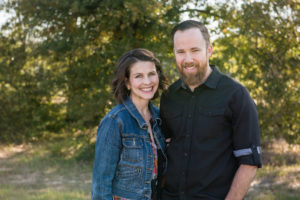


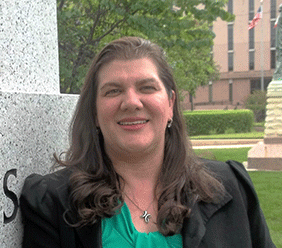
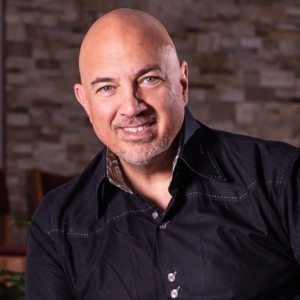
 Kimberly Kay Cox
Kimberly Kay Cox







 Mark Mogilka
Mark Mogilka














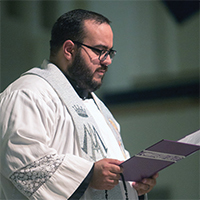



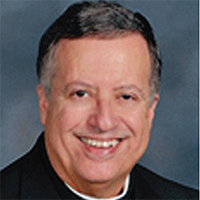

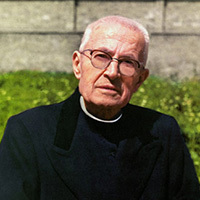








 Armando Cervantes
Armando Cervantes Anna Betancourt
Anna Betancourt
 Andrea Chavez-Kopp
Andrea Chavez-Kopp